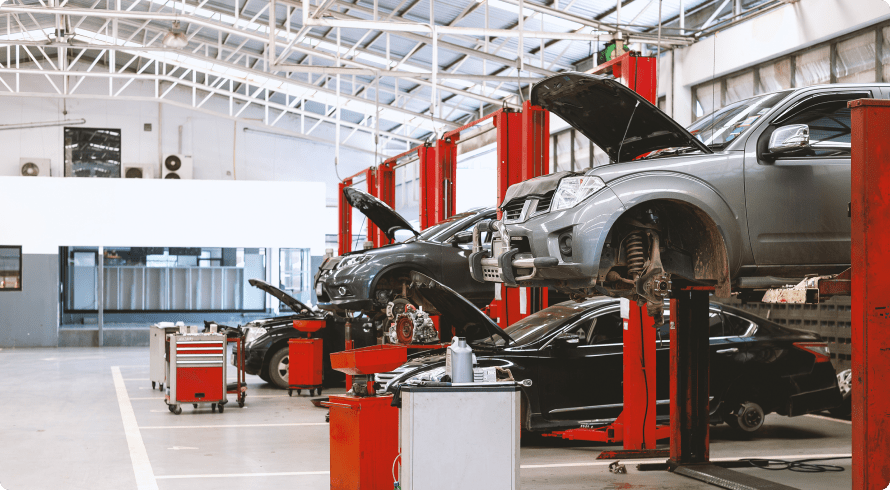A vehicle warranty is one of the most important considerations for car buyers, offering protection and peace of mind against unexpected repair costs. Whether you are purchasing a new car or a used vehicle, understanding the details of the warranty coverage can save you from costly repairs in the future. This article explores the various types of vehicle warranties, the benefits they offer, and how to make the most of your warranty to ensure your vehicle stays in good condition for years to come.
Table of Contents
What is a Vehicle Warranty?
A vehicle warranty is a contract provided by the manufacturer or dealer that promises to repair or replace certain parts of a vehicle within a specific period or mileage limit. Warranties are designed to protect car owners from unexpected repair costs and ensure that the vehicle operates as intended. Depending on the terms of the warranty, it can cover a wide range of issues, including powertrain components https://dellendirecto.com/, electrical systems, and the body of the vehicle. Understanding the specifics of your vehicle warranty is essential for maximizing its benefits and protecting your investment.
Types of Vehicle Warranties
There are several types of vehicle warranties, each providing different levels of coverage. The most common type of warranty is the bumper-to-bumper warranty, which typically covers almost all components of the vehicle, excluding normal wear and tear items like tires and brake pads. Another common warranty is the powertrain warranty, which covers the engine, transmission, and other critical components that are responsible for the vehicle’s movement. In addition to these basic warranties, many manufacturers offer corrosion warranties to cover rust and paint issues, as well as roadside assistance warranties, which provide help in case of breakdowns or emergencies. Understanding the various types of warranties available can help you choose the right level of coverage for your needs.
How Vehicle Warranty Protects Your Investment
A vehicle warranty is a valuable protection that can help you avoid costly repairs and ensure your car remains in good working condition. One of the primary benefits of a warranty is that it covers the cost of repairs for faulty components, which could otherwise be expensive to fix out of pocket. For instance, if your engine or transmission fails, a powertrain warranty can save you thousands of dollars in repair expenses. This financial protection is especially important for new car buyers, as new vehicles are typically more complex and costly to repair. A comprehensive warranty also adds resale value to your vehicle, as potential buyers know they will be protected from future repairs during the warranty period.
Understanding the Duration and Coverage of a Vehicle Warranty
Each vehicle warranty comes with its own terms and conditions, including the duration of coverage and the types of repairs that are covered. New car warranties often last anywhere from three to five years, with some manufacturers offering longer coverage. The duration can also be measured in mileage, with warranties often covering vehicles for up to 60,000 to 100,000 miles. It’s important to read the fine print of your warranty contract to understand the coverage limits and exclusions. For example, warranties may not cover damages caused by accidents, neglect, or improper maintenance. Being aware of these limitations ensures that you’re prepared for any situations that may arise during the warranty period.
Extended Vehicle Warranty: Should You Purchase It?
In addition to the standard warranty that comes with a new car, many manufacturers and third-party companies offer extended warranties. These warranties provide coverage beyond the standard terms, offering protection for a longer period of time. Extended warranties can be particularly useful for those who plan to keep their car for an extended period. While extended warranties can provide peace of mind, it’s important to evaluate whether they are worth the investment. Consider factors such as the reliability of your vehicle, the cost of the extended warranty, and how long you plan to keep the car. For some car owners, an extended warranty might be a wise choice, while for others, it may not offer enough value.
What is Not Covered by a Vehicle Warranty?
While vehicle warranties provide valuable protection, it’s important to understand what is not covered. In general, warranties do not cover regular maintenance items such as oil changes, brake pads, tires, or windshield wipers. Additionally, any damages caused by accidents, misuse, or neglect are typically excluded from warranty coverage. For example, if you fail to follow the manufacturer’s maintenance schedule or neglect necessary repairs, your warranty may be voided. It’s also important to note that modifications made to your vehicle, such as aftermarket parts or performance upgrades, may void certain parts of your warranty. Always consult your vehicle’s warranty terms and ensure you are following the recommended maintenance guidelines to avoid issues.
How to Make the Most of Your Vehicle Warranty
To get the most out of your vehicle warranty, it’s important to adhere to the maintenance schedule provided by the manufacturer. Regular maintenance, such as oil changes and tire rotations, can help ensure that your vehicle stays in good working order and remains covered under the warranty. Additionally, if you encounter any issues with your car, it’s crucial to have them addressed as soon as possible. Waiting too long to report a problem may result in a denied warranty claim, especially if the issue worsens due to neglect. Always keep records of maintenance and repairs, as these documents may be required if you need to file a warranty claim.
Filing a Vehicle Warranty Claim
When it comes to filing a vehicle warranty claim, the process is generally straightforward but may vary depending on the manufacturer or dealership. If you encounter an issue with your vehicle that is covered under the warranty, the first step is to contact the dealer or manufacturer to schedule an inspection. If the issue is confirmed to be covered by the warranty, the repair costs should be covered, provided that the claim is submitted within the specified warranty period. It’s important to follow all the necessary steps to ensure a smooth claims process. Be prepared to provide documentation such as your maintenance records and proof of ownership to support your claim.
The Importance of Vehicle Warranty for Used Car Buyers
While most people associate vehicle warranties with new cars, they are also important for used car buyers. Many used cars still have some remaining coverage under the manufacturer’s original warranty, while others may come with a certified pre-owned (CPO) warranty. A CPO warranty is offered by manufacturers for vehicles that have undergone a rigorous inspection and refurbishment process. These warranties can offer similar protection to a new car warranty, giving used car buyers peace of mind. When purchasing a used car, it’s important to inquire about the remaining warranty coverage and whether an extended warranty is available to ensure continued protection.
Conclusion
A vehicle warranty is a vital aspect of car ownership, offering protection against unexpected repairs and ensuring that your vehicle operates as it should. Whether you are purchasing a new or used vehicle, understanding the details of your warranty is crucial for maximizing its benefits. By adhering to maintenance schedules, being aware of what is covered, and taking action early when issues arise, you can ensure that your warranty remains valid and effective. Vehicle warranties provide both financial protection and peace of mind, making them an essential part of the car buying experience.








